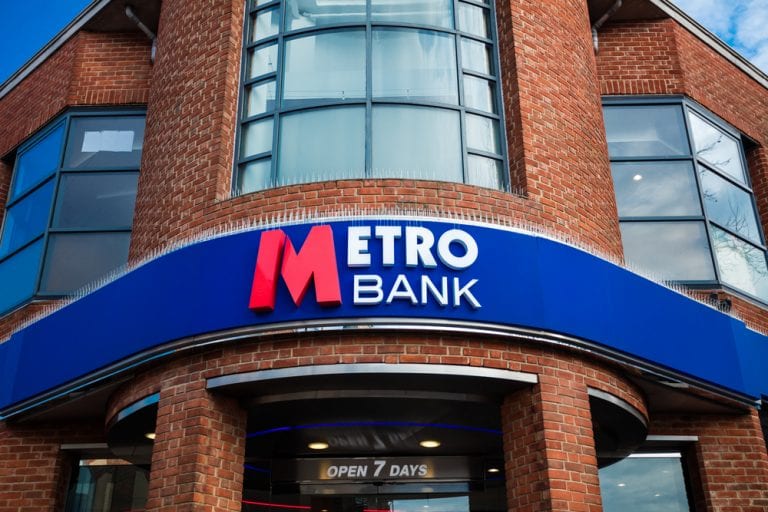According to analysts, Metro Bank in the UK is facing difficulties in raising fresh capital to bolster its balance sheet. The beleaguered bank’s stock has been downgraded by several ratings agencies and investment banks following a volatile 24 hours that saw its shares briefly suspended from trading twice after plummeting more than 29% from Wednesday’s closing. Reports emerged that the bank was considering equity funding of up to £250 million ($305 million) and £350 million of debt, leading to concerns about its future.
In an attempt to reduce capital requirements, Metro Bank has entered discussions to sell a third of its mortgage book to rival banks including HSBC, Lloyds Banking Group, and NatWest Group. Although this would decrease the bank’s earnings, it would also significantly reduce the amount of capital it needs to hold. Metro Bank has yet to comment on these reports, as have the potential buyers.
However, analysts are skeptical about the bank’s prospects for successfully raising funds. Investment bank Stifel has downgraded Metro Bank stock from “hold” to “sell,” citing the absence of easy solutions and expressing concerns about potential downside risks to the bonds. Stifel also suggested the bank could be nationalized under the Bank of England’s resolution scheme and subsequently sold either as a whole or in parts. Barclays Bank has similarly downgraded the stock to underweight.
Furthermore, Fitch Ratings has placed Metro Bank on “ratings watch negative” due to increased short-term risks to the bank’s business model stabilization, capital buffers, and funding.
These recent developments represent another chapter in the ongoing saga of Metro Bank, which launched in 2010 with the intention of challenging traditional banking practices in the aftermath of the financial crisis.
Recently, the Bank of England’s primary regulator, the Prudential Regulation Authority, indicated that it was unlikely to permit the lender to utilize its internal risk models for certain mortgages. On Thursday, the bank’s chairman, Robert Sharpe, met with officials from the central bank’s regulatory authority and the Financial Conduct Authority (FCA), as reported by the FT, citing sources familiar with the matter. This meeting follows a series of communications between regulators and the bank over the past month, coinciding with a significant decline in its share price. When reached for comment, the Bank of England declined to provide a statement regarding the meeting.
Metro Bank’s shares have lost approximately two-thirds of their value since mid-February, causing its market cap to be valued at £87 million as of the close on Wednesday, according to Reuters. Given its relatively small market cap, ratings agency DBRS Morningstar, which does not provide a rating for the bank, stated that Metro Bank’s ability to secure external financing will be severely restricted. However, DBRS Morningstar added that the bank’s challenges are unlikely to have a widespread impact on the U.K.’s financial sector due to its size and unique issues.
In 2019, the bank disclosed a significant misjudgment regarding its risk-weighted assets, resulting in reputational damage and fines of £10 million and £5 million from the FCA and the PRA, respectively. Meanwhile, short sellers have been profiting from the bank’s misfortunes. So far in 2023, investors betting against the bank have gained £4.8 million, with £2.5 million gained in October alone, according to financial analytics firm Ortex.
(Source: Karen Gilchrist | CNBC)









